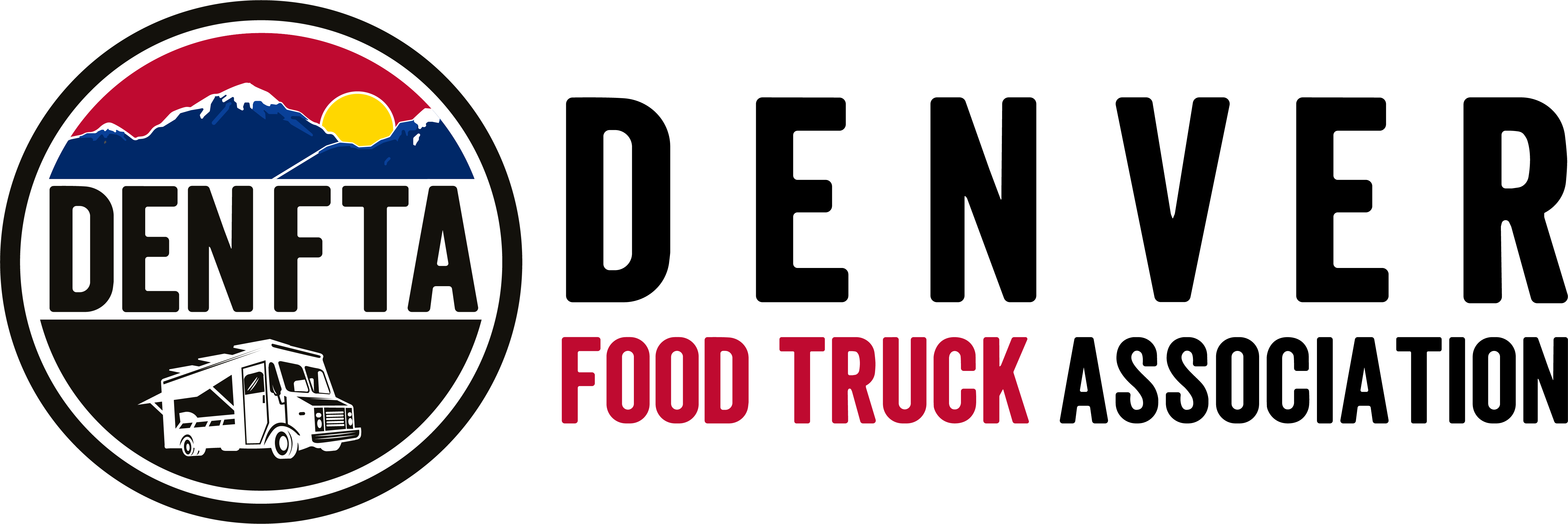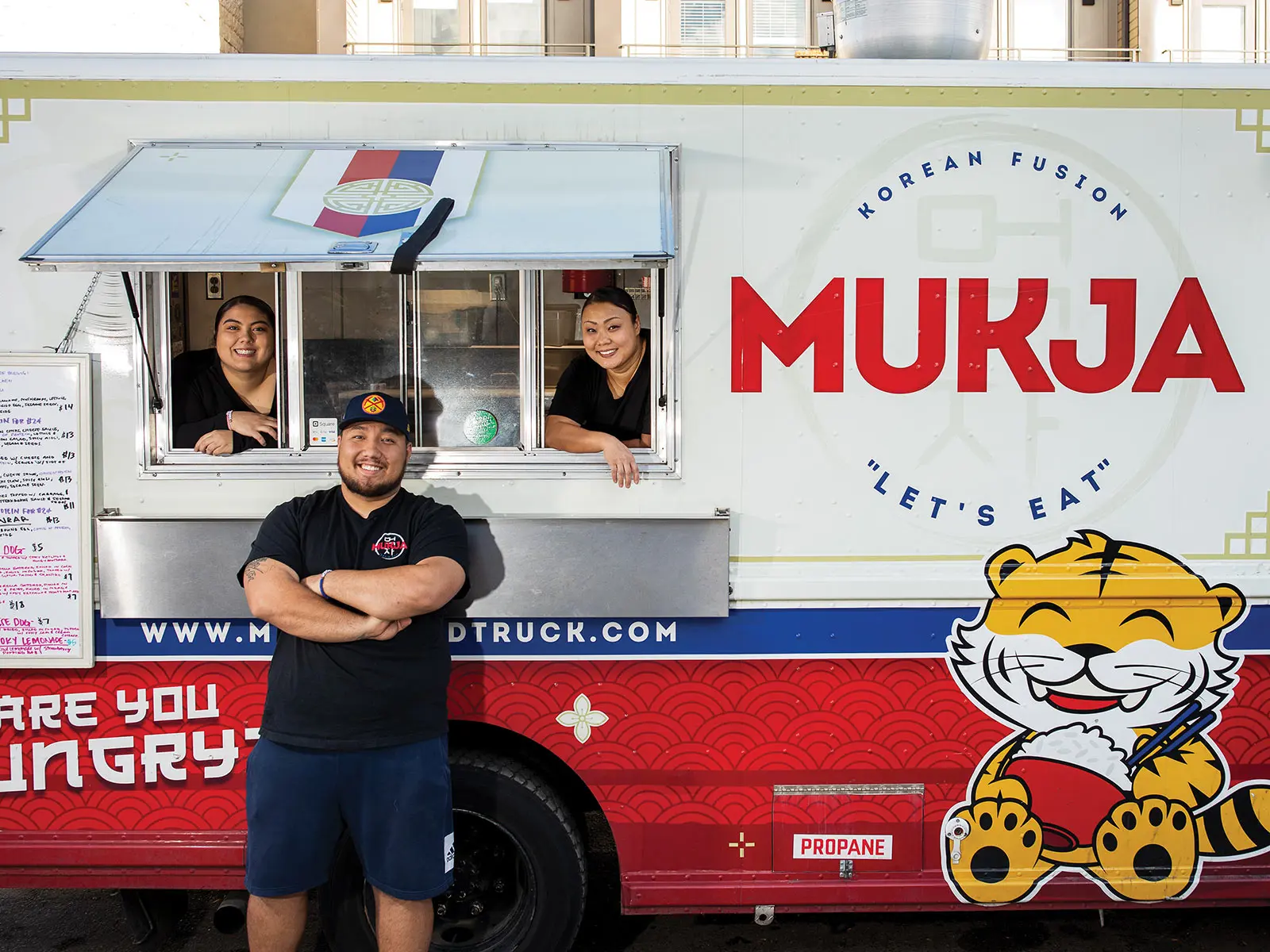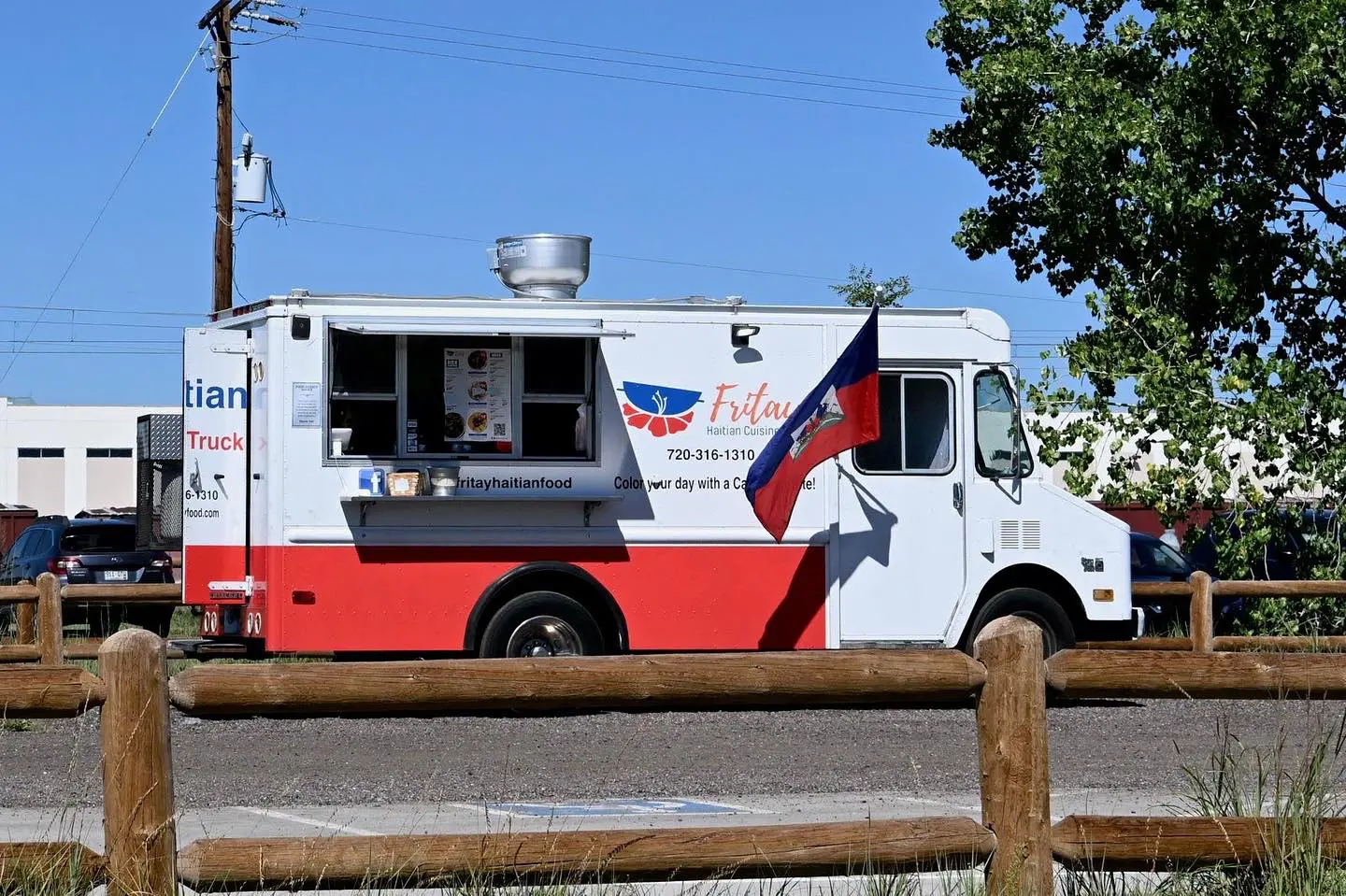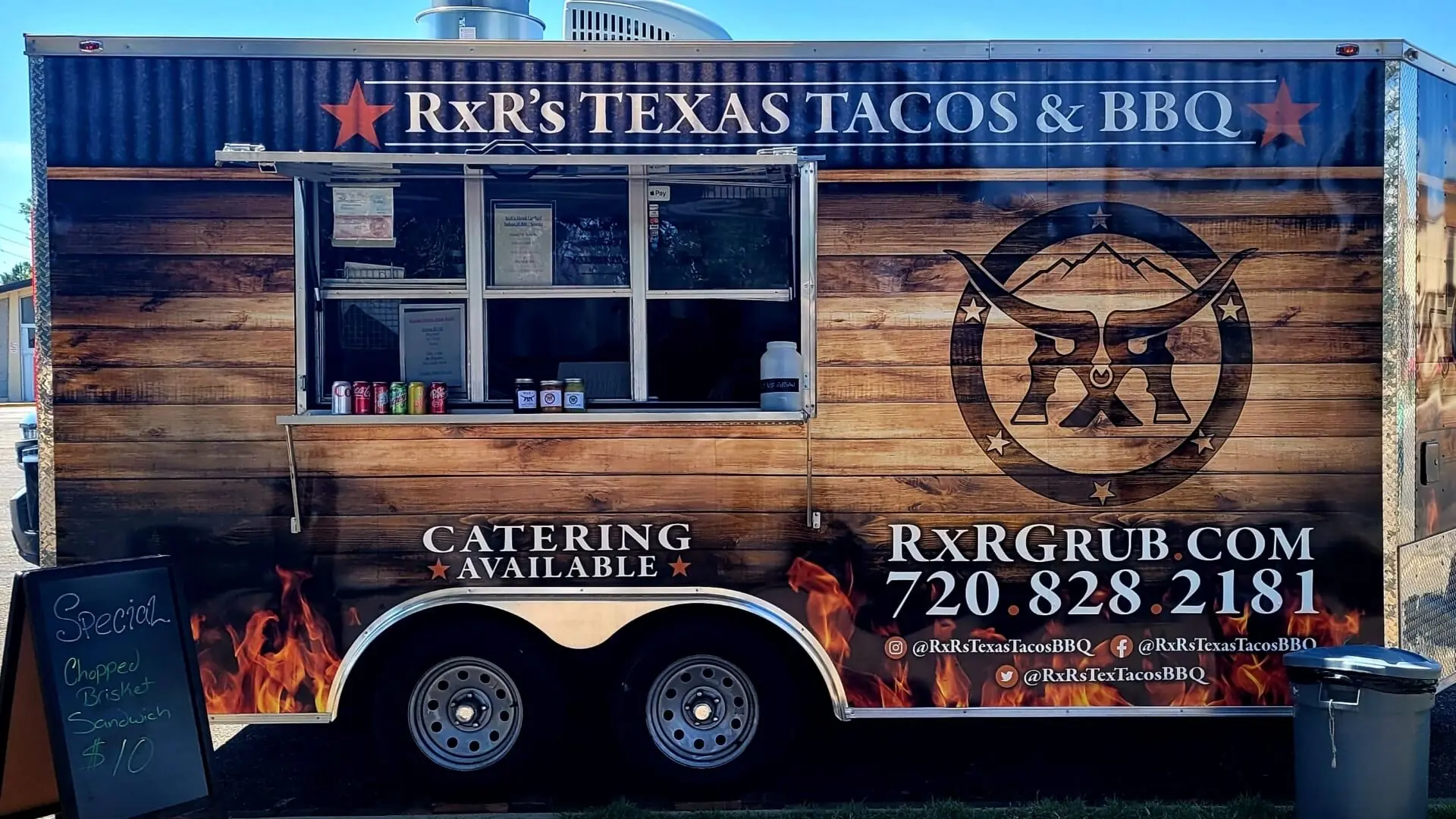Catering Costs 2026
A Comprehensive Guide to Food Truck Catering Costs in Denver (2026)
Denver, Colorado, the Mile High City, pulses with a vibrant energy that makes it an ideal host for unforgettable events. Nestled against the backdrop of the Rocky Mountains, this dynamic metropolis blends urban sophistication with outdoor adventure, drawing crowds for everything from corporate summits in LoDo to weddings in the golden aspens of fall. Food trucks have become the unsung heroes of Denver's event scene, transforming ordinary gatherings into interactive culinary festivals. Picture your guests lining up for smoky brisket tacos under the shadow of Coors Field or savoring gourmet wood-fired pizzas during a sunset reception at Red Rocks Amphitheatre. These mobile kitchens not only deliver bold flavors inspired by Colorado's farm-fresh bounty but also foster a casual, communal vibe that elevates any occasion.
Denver's food truck culture continues to flourish amid rising tourism and a booming tech sector, catering with these rolling eateries offers exceptional value. Traditional catering might set you back $80 to $100 per person for weddings, but food trucks slash that to $15 to $45, freeing up budget for live music, custom decor, or even a post-event brewery tour. Yet, pricing is not one-size-fits-all. Factors like seasonal demand during the Great American Beer Festival or logistical hurdles in mountainous venues can nudge costs up or down. This guide demystifies it all, providing estimates, breakdowns of structures, influencing variables, hidden fees, and practical booking strategies. Whether you are planning a 50-person birthday bash in RiNo or a 200-guest corporate retreat in Boulder, you will walk away with the insights to craft a delicious, debt-free event.
The Bottom Line: Average Costs at a Glance for 2026
Denver's food truck catering market remains accessible, with averages holding steady despite a 4 percent inflation bump in ingredients and labor. Drawing from platforms like Roaming Hunger and Food Truck League, the typical per-person rate spans $15 to $45, yielding totals of $750 to $4,500 for a 50-guest event before extras. Event minimums, essential for vendor viability, start at $800 to $1,200 for weekdays and climb to $1,500 to $3,000 for weekends, covering setup, staffing, and opportunity costs. These figures exclude Colorado's 8.81 percent combined sales tax (state plus Denver county) and gratuity, which can add 20 to 30 percent.
Average Costs
I. Budget-Friendly Tier: $15 to $25 Per Person
This accessible range captures Denver's street-food soul, focusing on quick, hearty staples that fuel festivals and family affairs. Iconic options include al pastor tacos with pineapple salsa from trucks like Billy Goat Burgers; loaded green chili fries from local gems like Pike Place Market-inspired carts; or classic smash burgers with Colorado beef from The Fainting Goat. These menus leverage efficient prep and seasonal produce, suiting office lunches in the Tech Center or park picnics in Washington Park. For 100 guests, expect $1,500 to $2,500, often including unlimited iced tea and compostable plates. This tier dominates 55 percent of bookings, thriving on high throughput (60 to 80 guests per hour) and minimal waste. In a city where craft beer flows freely, pair these with brewery collaborations for an authentic Mile High twist.
II. Mid-Range Tier: $25 to $35 Per Person
Striking a balance between flair and feasibility, this category embodies Denver's fusion-forward ethos. Signature dishes might feature bison short rib empanadas with craft hot sauce from Aceteando; quinoa-stuffed portobello bowls highlighting Front Range farms from Plant Based Nomads; or smoked trout platters evoking Rocky Mountain streams from high-end carts like Fish N Beer. Preparation demands artisanal touches, like house-fermented kimchi or gluten-free doughs, ideal for networking mixers at Union Station or rehearsal dinners in Highland. At 100 attendees, costs range from $2,500 to $3,500, bundling two entrees, a side salad, and non-alcoholic elixirs. With Denver's emphasis on sustainability, many trucks here incorporate zero-waste practices, appealing to eco-conscious crowds at events like the Cherry Creek Arts Festival.
III. Premium Tier: $35 to $45+ Per Person
For opulent outings, this elite echelon showcases Denver's innovative edge with luxurious, locally sourced indulgences. Envision wagyu elk sliders with huckleberry reduction from The Wolf's Tailor; truffle-infused ramen bowls using heirloom grains from Slattery's; or caviar-topped latkes from pop-up collaborations with James Beard nominees. Sourcing from Boulder County ranches and Palisade orchards elevates expenses, but delivers wow-factor presentations for galas at the Denver Art Museum or vow renewals atop Mount Evans. For 100 guests, budgets begin at $3,500 and soar with add-ons like sommelier-paired flights. Though pricier, these selections often include bespoke elements, such as LED-lit trucks for evening ambiance, justifying the investment for milestone celebrations.
Smaller events under 50 guests face inflated per-person rates due to minimums, while mega-gatherings over 200 unlock 10 to 15 percent volume discounts. Service windows default to two to three hours; extensions add $150 to $300 hourly.
Understanding Pricing Structures in Denver's Food Truck Ecosystem
When booking food trucks in Denver, you'll encounter two primary pricing structures, each designed to handle different types of events and attendance patterns.
The per-person model is the most straightforward and popular option. You pay a set price per attendee, which typically covers two or three protein choices, a starch or side, a beverage, and eco-friendly disposables. Service is usually buffet-style from the side of the truck. This works best when you have a reliable headcount (e.g., weddings, corporate lunches, or seated events at venues like the Brown Palace Hotel), because costs scale predictably with confirmed RSVPs and there's no risk of over- or under-paying.
The event minimum (also called a guaranteed spend) protects the truck owner in situations where turnout can fluctuate. You commit to a minimum revenue amount—for example, $1,200 for a Thursday-night tailgate—and if actual sales fall short, you cover the difference. This structure shines at open-invite or weather-dependent gatherings such as block parties in Baker, pop-ups in the RiNo Art District, or festivals where the guest count is hard to pin down.
Many Denver trucks now offer hybrid approaches: you guarantee a modest minimum, then switch to per-person pricing once that threshold is met. Another common variation is the guest-pay or “pay-as-you-go” option for ultra-casual events where attendees order and pay individually (often via app).
Since last year, the local market will have shifted strongly toward these flexible hybrids. Roughly 40% of bookings now include app-based pre-ordering, which helps trucks reduce on-site staffing, speed up service, and manage lines more efficiently. Denver Department of Public Health & Environment regulations continue to require full health-permitted setups, which adds a small premium to quotes but maintains high food-safety standards across the city.
Key Factors That Influence Your Final Quote
Quotes in Denver dance to a rhythm of variables, much like the city's unpredictable chinooks. Pinpointing them unlocks negotiation power.
Cuisine and menu intricacy top the list, with humble tacos at $15 per head versus elk tartare at $40, driven by ingredient premiums like Palisade peaches or Grasslands bison. Accommodations for 20 percent vegan or keto requests add $3 to $5 per person in sourcing and labor.
Guest volume scales linearly but sweetens at thresholds; beyond 150, fixed expenses like propane ($100 load) dilute, yielding rebates. Tiny soirees amplify effective rates via minimums. Duration anchors at two to three hours; overtime, vital for all-night raves at Beta Nightclub, tacks on $200 to $400, factoring in extended parking in metered zones.
Timing mirrors demand waves: Midweek in January dips 20 percent below October Saturdays amid leaf-peeping season or during the Denver Film Festival. Holidays like Cinco de Mayo spike 25 percent due to fiesta frenzy.
Location and logistics reflect Denver's topography. Core spots like Larimer Square incur no travel; foothills jaunts to Golden levy $2 to $4 per mile, plus altitude-adjusted fuel. Venue quirks, such as no-generator policies at historic sites, necessitate the use of $150 adapters. Traffic data from 2025 shows that I-70 backups add 30 minutes for east-side events, which are embedded in surcharges.
Quantify yours—say, 80 guests, mid-tier fusion, four hours on a Friday in July at City Park—and benchmark for precision.
The Hidden Menu: Potential Additional Fees
Itemized proposals are non-negotiable to evade surprises. Denver's regulatory tapestry weaves in extras.
Sales tax at 8.81 percent applies to all comestibles, post-subtotal, and encompassing add-ons like craft kombucha. This varies county-wide, jumping to 9.82 percent in Adams.
Service fees or gratuity hover at 18 to 22 percent, offsetting Colorado's $14.42 minimum wage (escalating to $15). Verify if tip-eligible or staff-direct; taxation hinges on structure.
Permits burden hosts for public realms like Civic Center Park, at $100 to $400 per day, covering health inspections and noise variances. Private pads, like rooftop lofts in LoHi, often bypass.
Parking tallies $20 to $60 in garages, reimbursable sans dedicated access. Fuel premiums, $50 to $150 for mountain treks, align with $3.50 per gallon averages.
Customization surcharges, $4 to $8 per head for bespoke like CBD-infused elixirs, promote inclusivity sans excess.
Smart Questions to Ask Before You Book
I. Interrogate vendors to unearth gems:
Encompasses the quote 8.81 percent tax, fees, and tips, or itemized?
II. Defines standard window, overtime levy?
III. Manages refuse, recycling per Denver's green mandates?
IV. Details utilities—220V, water hookup; generator provision?
V. Outlines cancellation—30-day 50 percent refund—and hail contingencies?
VI. Handle 15 percent restrictions surcharge-free?
Step-by-Step Guide to Securing Your Ideal Booking
1. Articulate essentials: Type, estimate (plus 10 percent buffer), date, site, cap.
2. Scout: Curate six to eight via aggregators, eyeing 4.8-plus stars and Denver critiques.
3. Solicit: Dispatch for tiered menus.
4. Vet: Total with add-ons; haggle minimums off-peak.
5. Seal: 30 to 50 percent earnest, affirming $1 million co.
6. Execute: Sync parking, utilities; relay sensitivities.
Final Thoughts: Fuel Your Denver Gathering with Finesse
Denver food truck catering delivers vibrant, mountain-inspired meals that capture the city's adventurous vibe—all at a fraction of the cost of traditional catering. Understanding the pricing models, minimums, and local quirks sets you up for a seamless win. Book with confidence, dive into bold local flavors, and make your event as unforgettable as the Rocky Mountain skyline. Here's to happy guests and epic gatherings!



